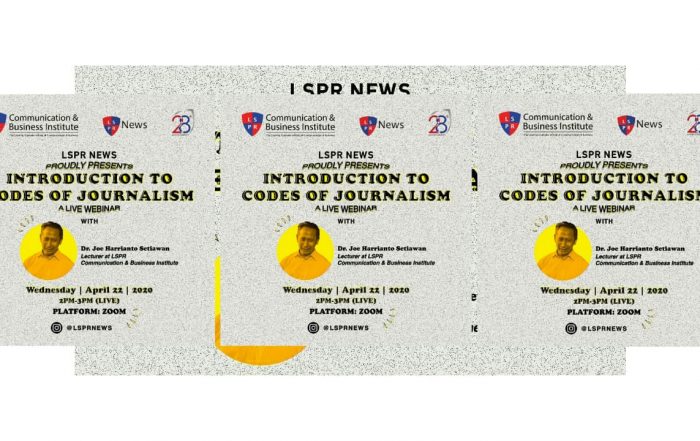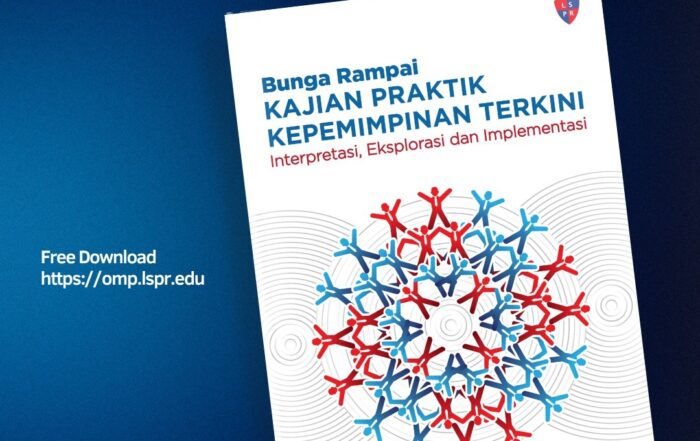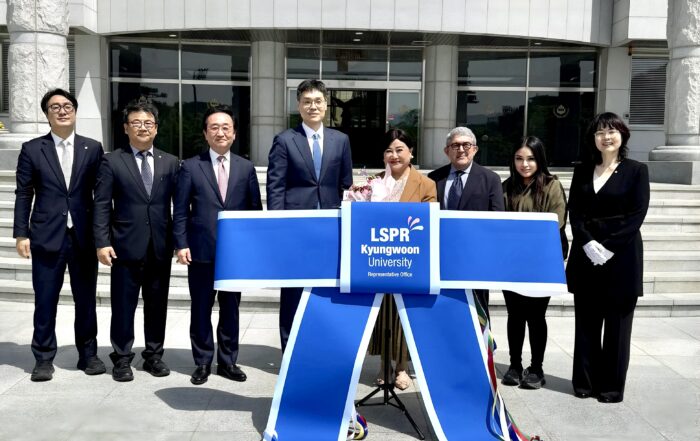

Jakarta – LSPR News held a Webinar event with the title “The Introduction to Codes of Journalism” on Wednesday, 22 April. The webinar invited Dr. Joe Harrianto, an LSPR lecturer as the speaker. Following the title of the event, the webinar talked about the code of ethics of journalism.
In journalism, the code of ethics is a “rule” that regulates the extent of space for journalists. Ethics is different from law. Ethics is leaning towards moral. It’s about how does an individual act according to their mind. If ethics are violated, the punishment is social sanctions, whereas law is a written rule. These rules are absolute, and if broken, the sentence is in the form of civil law.
The code of ethics in journalism is essential. There must be a limit to the extent to where journalists can move. The code of ethics has been officially established and written by the Dewan Pers through Peraturan Dewan Pers tentang Kode Etik Jurnalistik.
There are eleven articles in the rule. One of them is Article 3: Indonesian journalists always check information, report in a balanced manner, don’t mix facts and judgmental opinions, and apply the presumption of innocence.
If these articles are violated, the punishment will be in the form of moral sanctions. One of them is the reduction in people’s trust in the journalist’s work. This can have a greater impact than just criminal law.
Article by Dianka
Photo by Putri Syifa











